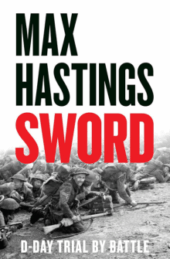Opening The Gates of Hell – Review
For many of us Operation Barbarossa reaches its point of maximum impact with the relentless siege of Leningrad and the battle of Stalingrad. These two cornerstones in our awareness remind us of the extent of the German advance in 1941-42. Richard Hargreaves offers us an intricate and meticulous introduction to the start of that advance. His use of personal testimonies and records is exceptional and this helps us to understand how both sides of the conflict reacted as the assault began.
The detail is extraordinary. Hargreaves is only introducing us to the first few weeks of the campaign. He examines the mindsets of both sides. The Nazi-Soviet Pact of 1939 should have been a reassurance to both sides. However, the Soviet government had continued to strengthen its military capability, yet Hargreaves demonstrates that, despite its scale, much of its capital equipment was outdated or becoming outdated. In a sense, the Russians did know that a conflict with Germany would ultimately occur. Anyone who had read Mein Kampf would have known that the Lebensraum that Hitler had identified as his target would be the open spaces in the wider reaches of Russia.
From the German perspective what became Operation Barbarossa would be an inevitable strategic move because of Hitler’s ideological plan for Lebensraum but also because of his innate disrespect for the Slavic peoples. To this extent, the armed forces were prepared for this onslaught but Hargreaves also demonstrates that there were inadequacies of supply and equipment, which became more apparent as the campaign unfolded.
On 22nd June 1941 German forces began an invasion on a front which extended from the Baltic Sea to the Black Sea, a front which easily is in excess of 1000 miles. Hargreaves provides what is in effect almost a minute-by-minute account of what happened in those first few weeks. The personal records that he has surveyed reveal the uncertainties expressed on both sides, including Germans who believed that what was being attempted would ultimately be unattainable and the Russian view of how substantial the scale of sacrifice would have to be to resist this onslaught. The commentary from those down at the battlefront predicted the ultimate disaster that would follow: disaster because German supply and communication lines were a major factor in their failure and human disaster in terms of the extraordinarily high death toll on both sides.
The personal testimonies from both sides are quite harrowing. For example, as the Russians retreated through Lithuania, they destroyed the economic infrastructure so that it could not be used by the Germans; and the Germans murdered civilians who opposed their advance, in particular the Soviet commissars who were seen as the political manifestation of the retreating regime. On both sides of the border the substantial Jewish minority were placed in a quandary. In Lithuania, the Jewish population had previously felt threatened under Soviet rule but, given what was already known about the Nazi attitude to Jews, they attempted to escape eastwards, in effect in the same direction as the retreating Soviet forces. This mass evacuation led to acts of unspeakable inhumanity when groups of fleeing Jews were identified and slaughtered by Russian forces, a very specific glimpse of how this rapidly became what Hargreaves describes as ’the gates of hell’
This very important analysis and commentary reminds us that military and political leaders need to have a greater awareness of historical precedents, just to mention Napoleon’s disastrous march on Moscow in 1812 which was a case study in fielding a large ill-prepared army in inevitably challenging climatic conditions, or alternatively what could be achieved by a well-led force such as with Marlborough’s victory at Blenheim. Equally, what Hargreaves reveals is also a reminder to modern-day strategists, with, as it happens, Russia attacking Ukraine with seemingly insufficient resources to secure a clear victory. Hargreaves’ title Opening the Gates of Hell is wholly appropriate: the human disaster that occurred was very much a living hell to the people of central Europe in the years that followed.
Opening the Gates of Hell: Operation Barbarossa, June-July 1941 by Richard Hargreaves is out now and published by Osprey Publishing.
Trevor James is the former editor of The Historian.







